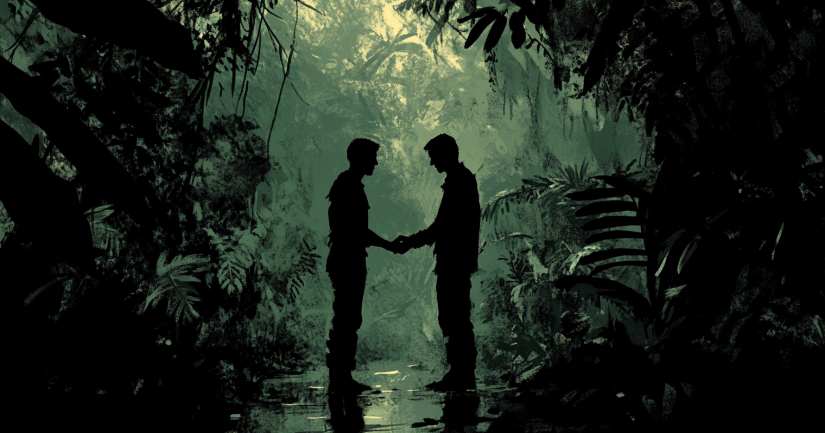
Reflect on the intricate storytelling of Chapter 6 with The Things They Carried Quiz, as you follow O’Brien’s masterful prose. This chapter delves deep into the heart of the Vietnam War, revealing the burdens soldiers bear, both tangible and intangible. As you navigate through this quiz, you’ll uncover the profound themes of fear, camaraderie, and duty. Each question invites you to explore the complexities of the human experience during war.
What choices do soldiers make under pressure? How do memories shape their reality? This quiz will challenge your understanding and encourage you to think critically about the soldiers’ journeys. You’ll gain insights into the emotional and psychological weights, just as heavy as the physical loads they carry.
The journey continues! Now, uncover the key moments in The Things They Carried Chapter 7 Quiz, review the lessons of The Things They Carried Chapter 5 Quiz, or see how well you remember the novel as a whole with The Things They Carried Full Book Quiz.
Engage with the text, and reflect on the nuanced storytelling of O’Brien. Discover what lies beneath the surface of each soldier’s story. Are you ready to test your knowledge and deepen your appreciation for one of literature’s most poignant war narratives? Dive in, and see how well you grasp the intricacies of Chapter 6. The Things They Carried Quizzes: Explore Tim O’Brien’s Vietnam War stories …
What Happened – The Things They Carried Chapter 6 Quiz
In Chapter 6 of The Things They Carried, the soldiers are in Vietnam. They are in a village looking for a tunnel. Lieutenant Jimmy Cross is the leader. He is worried about his men. One soldier, Lee Strunk, draws the short straw. He has to crawl into the tunnel. The other soldiers wait nervously. They are scared about what might happen. After a while, Strunk comes out safely. Everyone is relieved.
Later, the soldiers continue their march. They are tired and hot. They carry heavy equipment. They also carry personal items. Each soldier has his own things to carry. Ted Lavender, one of the soldiers, uses drugs to calm his nerves. He is always scared.
During the march, Ted Lavender is shot and killed. It happens suddenly. The soldiers are shocked and upset. They carry Lavender’s body to a helicopter. They also take his personal items.
After Lavender’s death, Lieutenant Cross feels guilty. He thinks he was not careful enough. He spends time thinking about a girl named Martha. He wishes he could be with her. Cross decides to focus more on his duties. He wants to protect his men.
The soldiers continue their mission. They try to deal with the danger and fear around them. They keep moving through the jungle. They carry their equipment and memories of their friend.
The Things They Carried Chapter 6 – Quotes
- “All that peace, man, it felt so good it hurt. I want to hurt it back.” – Norman Bowker, ‘Reflecting on the complexities of surviving the war and the paradox of peace.’
“He was a soldier after all.” – Narrator, ‘Describing the inevitable identity of a soldier despite the desire to escape it.’
“That quiet—just listen. There’s your moral.” – Kiowa, ‘Discussing the ambiguous nature of morality in war with O’Brien.’
“The rain made it sound like war.” – Narrator, ‘Highlighting the omnipresence of war in the soldiers’ experiences.’
“It’s time to be blunt.” – Mitchell Sanders, ‘Preparing to share a harsh truth about wartime reality.’
“He felt shame. He hated himself.” – Narrator, ‘Describing Norman Bowker’s internal struggle and guilt in the aftermath of war.’
